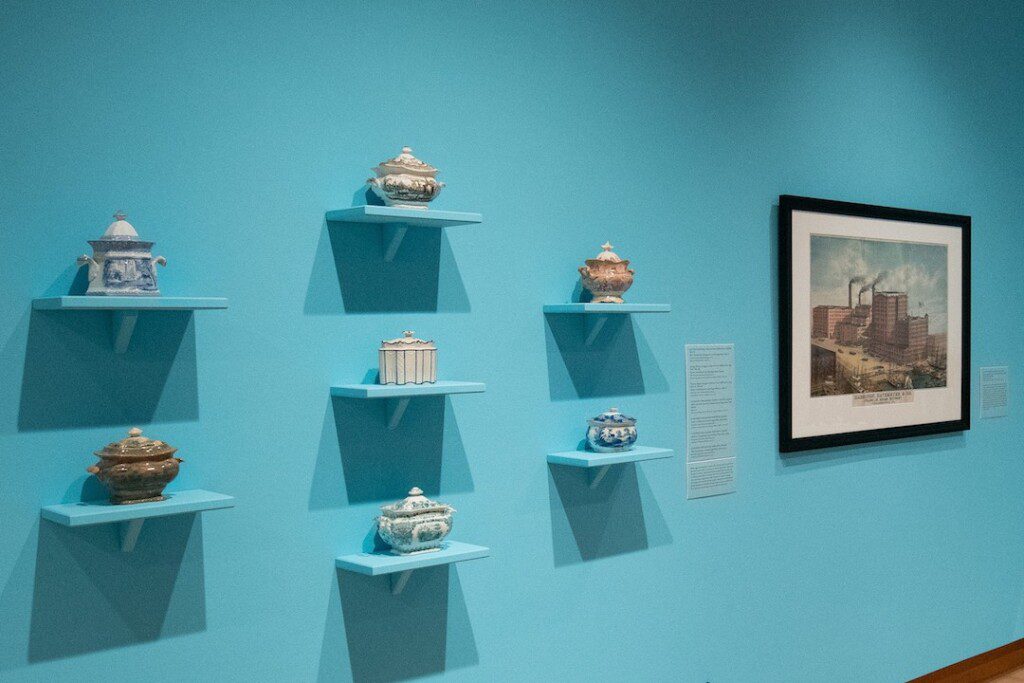
Shelburne Museum is committed to promoting and protecting Diversity, Equity, Accessibility, and Inclusion (DEAI) for our internal and external communities. Understanding that museums play active roles as cultural leaders, allies, and agents of change, this statement is a living document that outlines the Museum’s values and commitments to advancing DEAI initiatives throughout all aspects of visitor and staff engagement. The Museum recognizes that the advancement of DEAI requires constant work, evaluation, and often includes implementation of new policies, procedures, and practices. In full transparency to the Museum’s staff and visitors, this statement shares the Museum’s short and long-term goals and plans and will be continuously updated to reflect our evolving DEAI efforts.
Shelburne Museum does not tolerate any forms of racism, harassment, injustice, bias, or discrimination experienced in our community or at the Museum by staff, Board of Trustees, or visitors. To report any concerns related to any form of harassment, intimidation, or intolerance please contact director@shelburnemuseum.org or hr@shelburnemuseum.org.
Shelburne Museum will promote and advance DEAI efforts through these five core values:
In undertaking this work, Shelburne Museum defines DEAI principles in accordance with those articulated by the American Alliance of Museums:
Diversity is all the ways that people are different and the same at the individual and group levels. Even when people appear the same, they are different. Organizational diversity requires examining and questioning the makeup of a group to ensure that multiple perspectives are represented.
Equity is the fair and just treatment of all members of a community. Equity requires commitment to strategic priorities, resources, respect, and civility, as well as ongoing action and assessment of progress toward achieving specified goals.
Accessibility is giving equitable access to everyone along the continuum of human ability and experience. Accessibility encompasses the broader meanings of compliance and refers to how organizations make space for the characteristics that each person brings.
Inclusion refers to the intentional, ongoing effort to ensure that diverse individuals fully participate in all aspects of organizational work, including decision-making processes. It also refers to the ways that diverse participants are valued as respected members of an organization and/or community.

Shelburne Museum is committed to serving our community by:

Shelburne Museum is located upon land sacred to the Western Abenaki people. Called N’dakinna, or “our homeland,” this place has long served as an important site of meeting and cultural exchange. We honor and celebrate the Abenaki’s rich history as the traditional and ongoing stewards of these lands and waters. We remember that this land is unceded and recognize the enduring injustices rooted in colonialism and systemic oppression faced by Indigenous peoples. With humility and gratitude, we remain committed to sustaining meaningful relationships with Indigenous peoples to share this land as a place to gather, learn, and thrive.

Shelburne Museum acknowledges the complex history of the capital provided by Museum founder Electra Havemeyer Webb in the creation of the institution in 1947. The Havemeyer family immigrated to New York from Germany as sugar bakers and subsequently made their fortune by industrializing the process of refining sugar over three generations, including founding the American Sugar Refining Company (later Domino Sugar) in 1887, and ultimately controlling the commodity in the United States through a monopoly in the late 19th century. The industry relied on the harvesting of sugar cane by enslaved peoples and their descendants in the Caribbean as well as the processing of that raw material by immigrant workers laboring in harsh and dangerous conditions. Profits from the sugar industry enabled privileged opportunities for the Havemeyer family and ultimately provided the resources inherited by Electra Havemeyer Webb that were central to the origin of Shelburne Museum.
Institutional reflection is a critical process and a core value at Shelburne Museum. The responsibility falls upon us to understand the weight of the organization’s economic history, examine the long-term cultural and environmental impacts of the sugar industry, and develop learning initiatives that respond to these issues and to create avenues for dialogue and understanding.
Below is a list of additional resources to learn more about the sugar trade:
Shelburne Museum formed an interdepartmental DEAI Steering Committee in 2020 to lead conversations surrounding the importance of diversity, equity, accessibility, and inclusion in museum practice. Since its inception, the DEAI Steering Committee has worked to lay the foundations for DEAI frameworks at the Museum, and established DEAI Values, DEAI Commitments, a Land Acknowledgement, and a Legacy Statement to be upheld by all staff and supported by DEAI Steering Committee efforts.
Through a frequent and consistent meeting schedule, the DEAI Steering Committee acts to support strategies for learning, development, and implementation. Ongoing DEAI learning and engagement opportunities for all staff include participation in intermittent trainings, quarterly DEAI Coffee Hour programming, and a DEAI Reading Group, as well as monthly DEAI newsletters and access to DEAI Learning Libraries in staff common areas.
Learn more about our previous and upcoming activity by exploring the drop downs below.